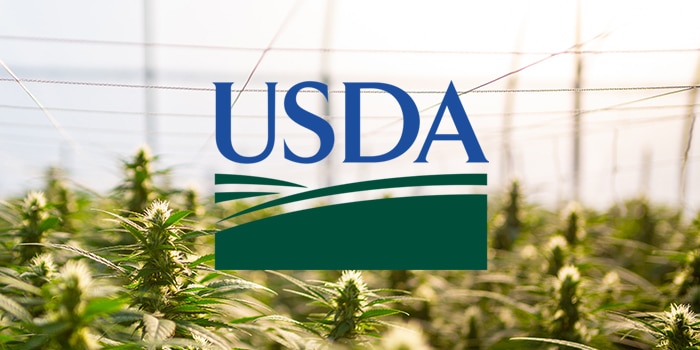The US Department of Agriculture released a list of the $3.5 billion Climate Smart Commodities grants last Wednesday, and it included two major hemp projects, one of which is focused on carbon sequestration, according to Lancaster Farming.
Secretary Tom Vilsack released this list and said that the projects are designed to help develop and market climate-smart commodities, giving a voluntary, market-driven boost to commodity crops that are sustainably produced.
Vilsack also said the efforts will “quantify, monitor, verify, and report the greenhouse gas benefits from the projects.” Grants are being funded through the USDA’s Commodity Credit Corporation.
A total of 70 high-dollar grants were announced among more than 1,000 applicants to the programs. “We were overwhelmed by the response,” said Vilsack.
The USDA increased the award amounts from $1 billion to $3.5 billion. Over the life of the ag projects, the USDA is hopeful of recording more than 50 million metric tons of CO2-equivalent and greenhouse gas reductions, Vilsack said. “That’s equal to about 10 million cars being taken off the road.”.
What’s exciting is hemp was among the commodities targeted by USDA to develop agricultural markets that will sequester CO2 and greenhouse gases through climate-smart practices. Vilsack listed some of the other crops and industries: Forestry, dairy, livestock, cotton, peanuts and nut crops, fruit, vegetables, and specialty crops.
$15 million went to Atlanta, GA-based Iconoclast Industries, LLC, led by Ryan LaRocca. The project is to develop open-access industrial fiber and grain supply chain data in a digital marketplace. The project will also develop an inclusive workforce skilled in climate-smart practices, financially supporting underserved producers as they learn these practices, USDA said. The project includes industrial hemp partners and some medical marijuana and cannabinoid partners, too.
Some of these major partners are Nashville-based Ganjanesh Bioscience; Montana’s INDHEMP; Utah’s Global Hemp Association, Illinois-based 357 Hemp Logistics, Minorities for Medical Marijuana; Canndigenous and EntreVation LLC. Several universities are listed as partners, including: The University of Florida, University of Georgia, Stockton University, and Stillman College. Projects will take place in Florida, New York, Tennessee, Virginia, and Wisconsin.
Another $5 million grant was awarded to Lincoln University in Jefferson City, Missouri, to help commercialize and market climate-smart hemp crops while driving soil carbon sequestration and climate resilience. The project will also implement new genetics and management practices to increase the sustainability of hemp as an annual crop in the United States, the USDA said.
Other partners include the DC-based National Hemp Association, San Jose, CA-based DTE Materials; Murray, KY-based HempWood, Kansas-based Midwest Natural Fiber, Colorado-based New West Genetics; New Haven, CT-based REA Resource Recovery Systems; and Missouri-based Rockwater and Winston-Salem, NC-based Renaissance Fiber. University and state partners include Oklahoma State University, Prairie View A&M University, St. Louis University, Southeast Missouri State University, and the University of Missouri. Projects will take place in Kansas, Missouri, Oklahoma and Texas.
Hemp was also mentioned as one of the multiple crops in other climate-smart projects in several other grants. $90 million went to ADM and Partners’ Climate-Smart Solutions. $50 million went to Oregon State University for Climate-Smart Potatoes from the Pacific Northwest. The project is called Managing Soil Health for Climate-Smart Outcomes. $65 million went to Texas A&M Agrilife Research a part of the Texas Climate-Smart Initiative.
The USDA will announce another round of other smaller grants between $250,000 and $5 million at a later date, totaling 450 total grant recipients, Vilsack said.


